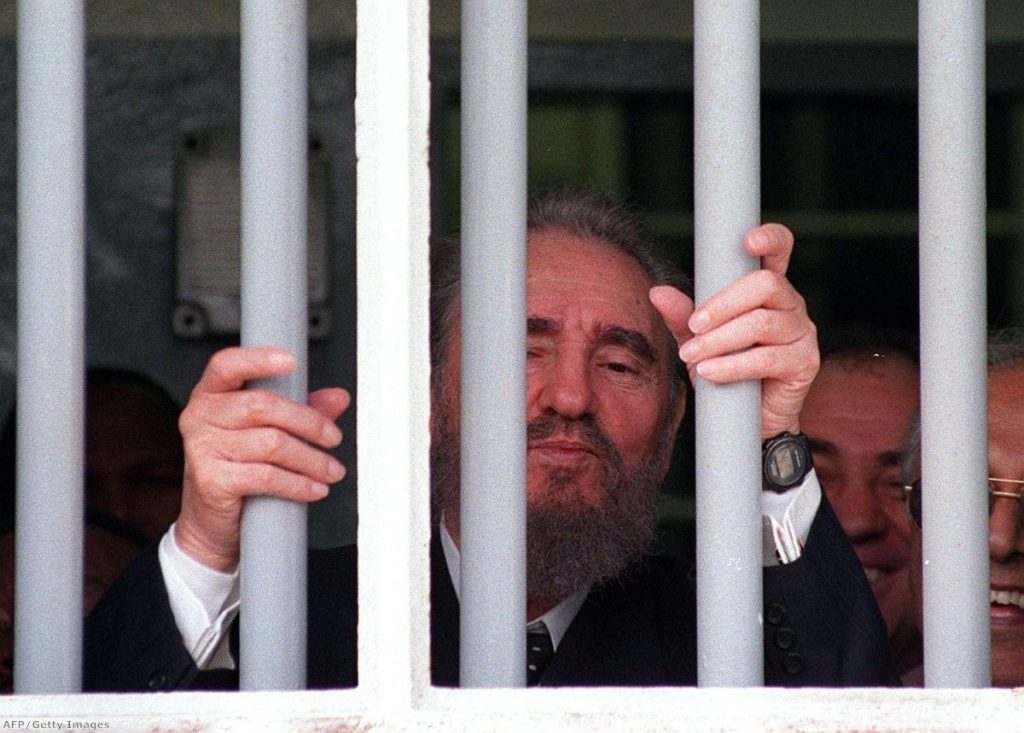Censored: Why the media hides Cuba’s role in the end of apartheid
Inconvenient figures have been whitewashed from the coverage of Nelson Mandela's death.
The photo pull-out sections show the South African leader with Bill Clinton, with Princess Diana and Naomi Campbell and the Spice Girls. But his close friendship with Fidel Castro and the two men's habit of calling each other 'brother' is written out of history.
At his memorial service today, the presence of figures like Cuban leader (and Fidel's brother) Raul Castro is treated as an example of Mandela's ability to straddle political and ideological divides. After all, something has to explain the presence of these evil figures at a service for a saint.
But Castro is not being given pride of place as a sign of Mandela's ability to straddle divides. He is given pride of place because black South Africans, unlike Brits or Americans, recognise Cuba's proud role in the end of apartheid.


While Britain was supplying arms and military equipment to the apartheid regime, Cuba was sending its men to fight it, securing key military victories and crippling its room for manoeuvre.
For decades, Cuba supported the armed struggle liberation movements in South Africa, Cape Verde, Guinea-Bissau, Angola and Mozambique. In 1961, when Che Guevara attended a summit in Geneva as industry minister, he attacked "the inhuman and fascist policy of apartheid" and demanded the expulsion of South Africa from the UN, all decades before Britain could bring itself to challenge the racist government.
The climax of the decades-long campaign came when Cuba supported liberation forces in Angola against South African interference. In the 1988 battle of Cuito Cuanvale, a victory celebrated across southern Africa, South African soldiers were defeated a volunteer Cuban army , dragging PW Botha and FW de Klerk to the negotiating table.
Mandela described Cuba as "our friend", a country which "helped us train our people, who gave us resources that helped us so much in our struggle". He added: "The defeat of the racist army at Cuito Cuanavale has made it possible for me to be here today. What other country can point to a record of greater selflessness than Cuba has displayed in its relations with Africa? For the Cuban people internationalism is not merely a word but something that we have seen practiced to the benefit of large sections of humankind."
When challenged on his friendship with Castro by Clinton, Mandela replied: "We should not abandon those who helped us in the darkest hour in the history of this country."
What does it mean? Does it mean that the gay people and political campaigners imprisoned in Cuban jails are any more free? No. Does it make it any less sickening that the Cuban regime treats freedom of speech as an aberration against single party rule? No. Does it protect Cubans from impoverishment in the name of dogma? It does not.
But it speaks to a far more complex and nuance reality than that tolerated by the mainstream media.
While Margaret Thatcher was branding Mandela a terrorist and selling arms to the apartheid regime, Communist Cuba took up arms against it. While Britain was strutting the world stage, throwing around high-minded accusations about human rights, Cuban volunteers were dying in Angola fighting the racist regime.
For all the endless hours of coverage about Mandela in the last few days, a typical reader would have no idea about the role Cuba played in the overthrow of apartheid. The media refuses to look at history independently. It is still guided by government-mandated assessments of good guys and bad guys. Cuba are bad guys, so they could not possibly have done anything good.
The public are fed a sanitised and self-serving view of history. It's small wonder Britain's moral posturing on the world stage contrasts so disappointingly with its moral failures.









